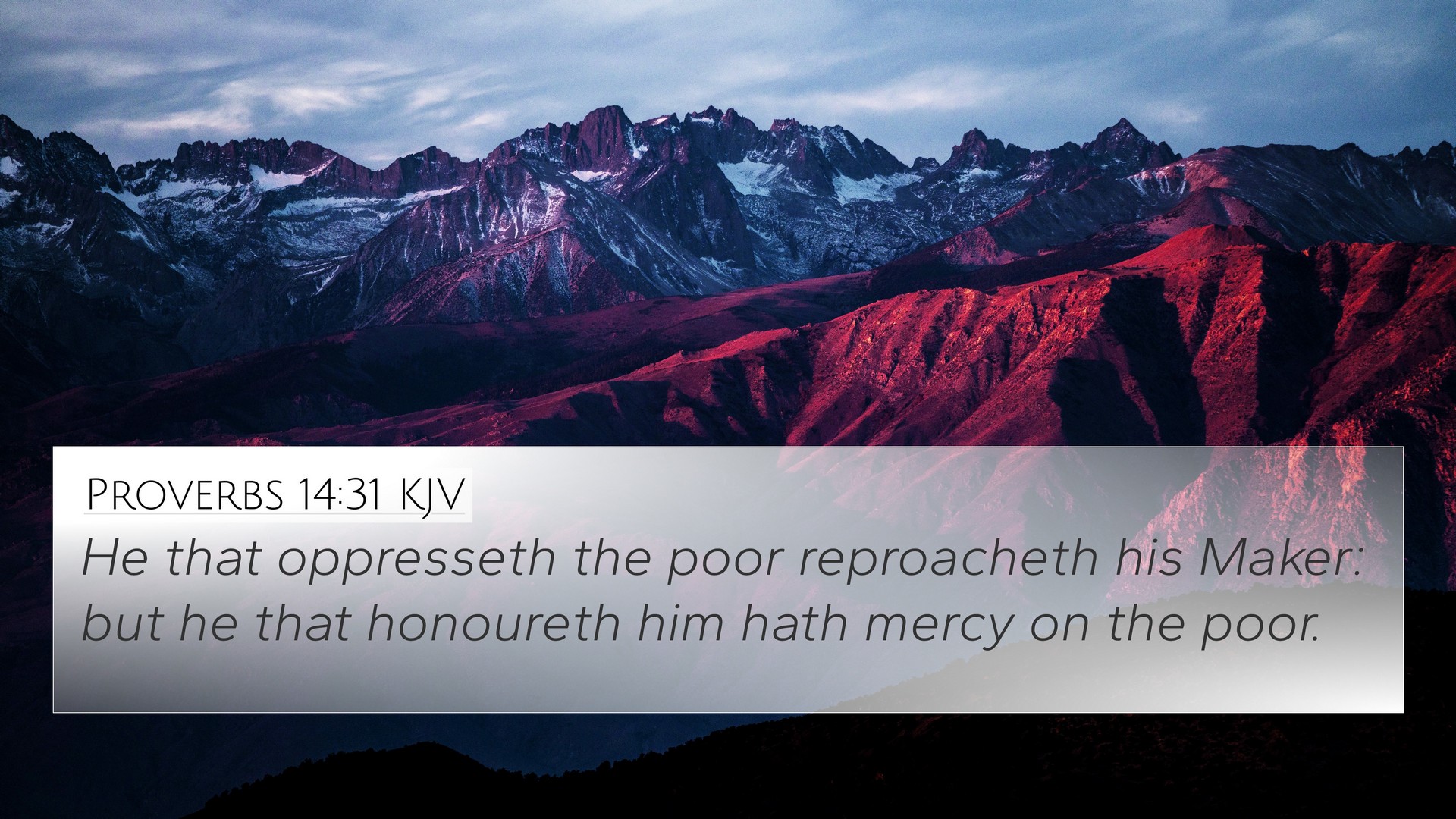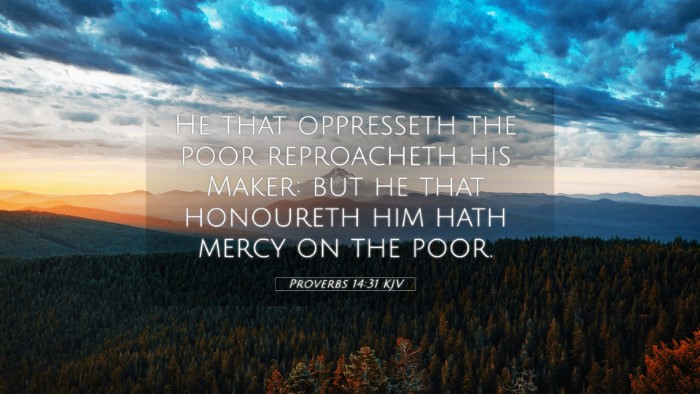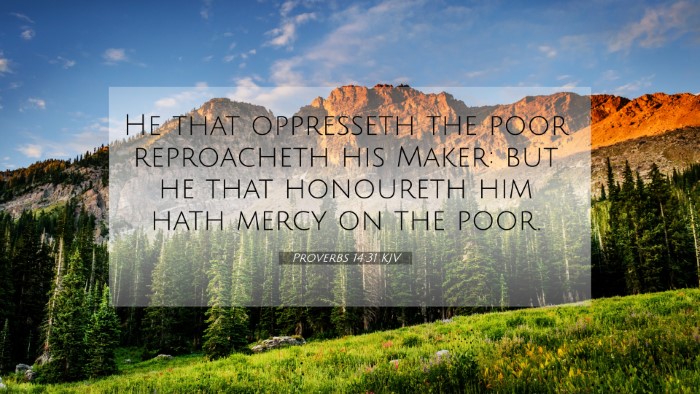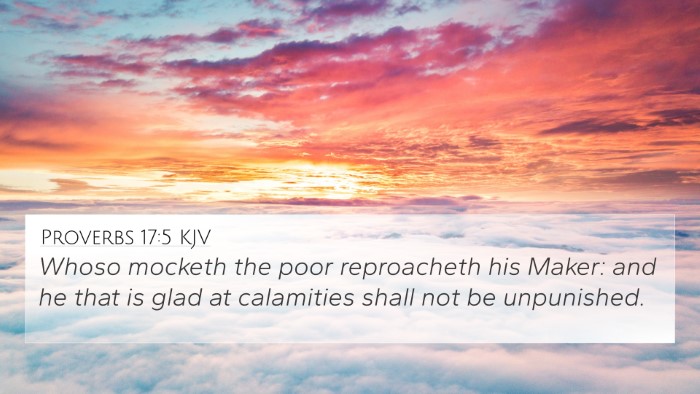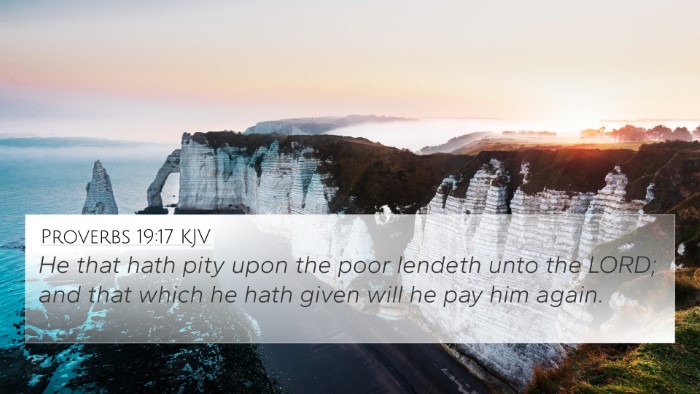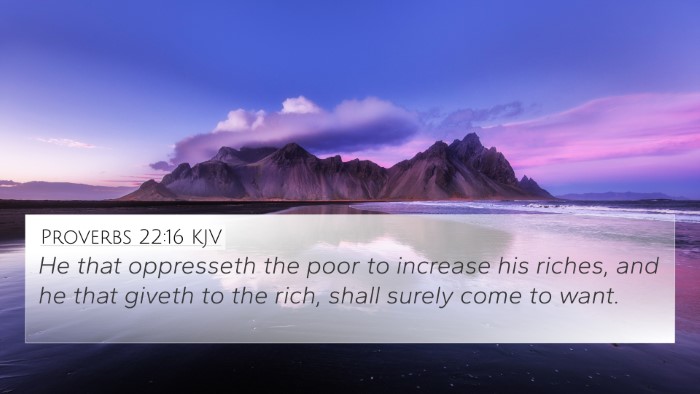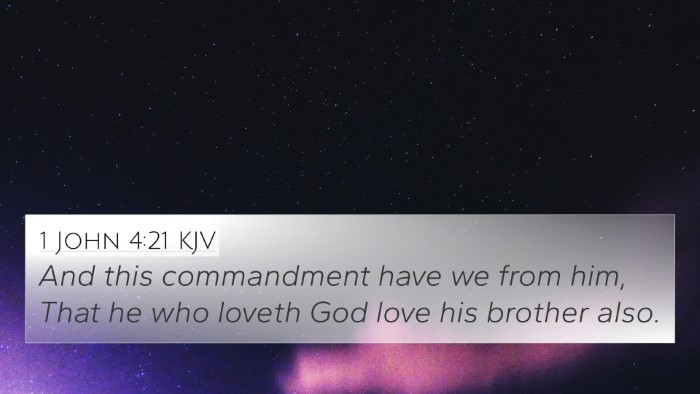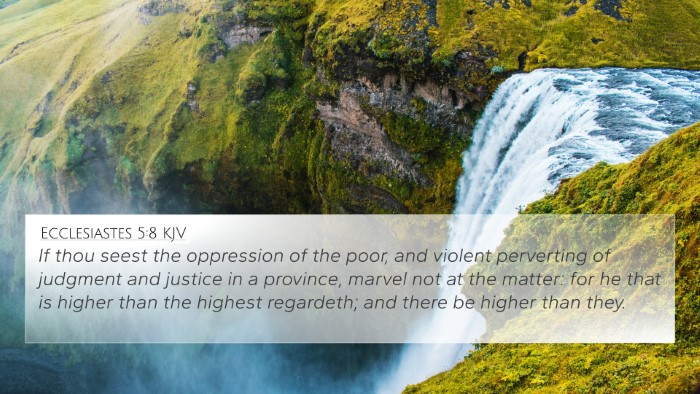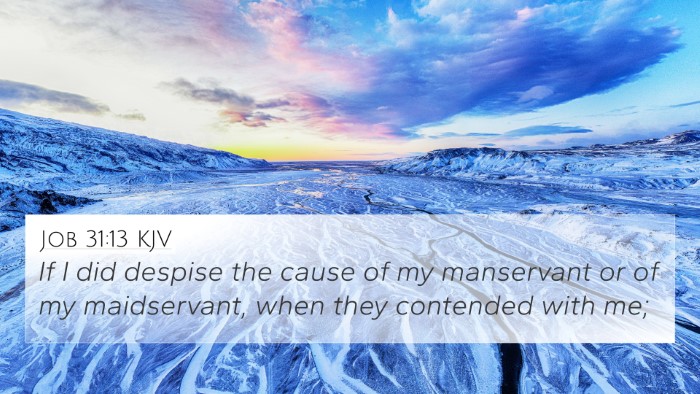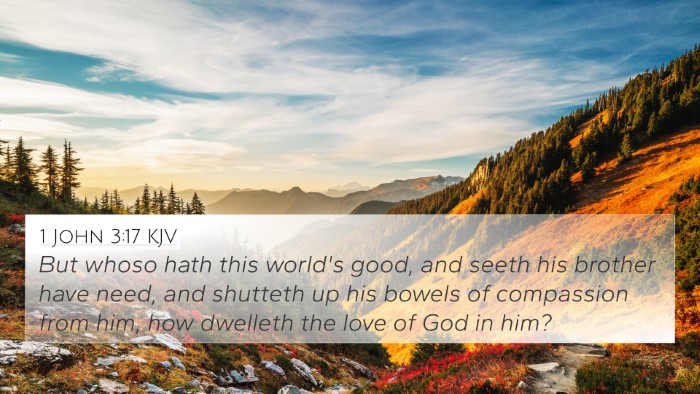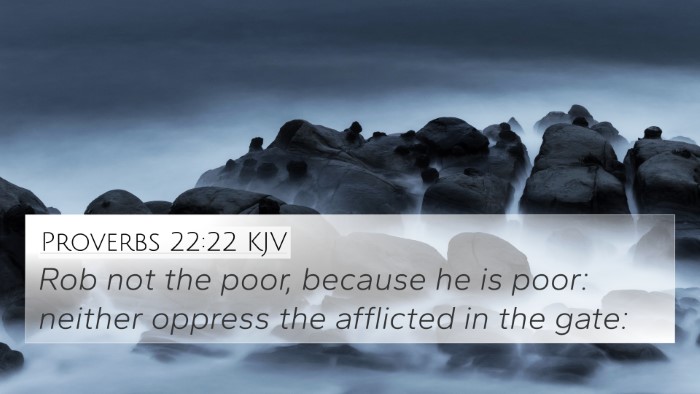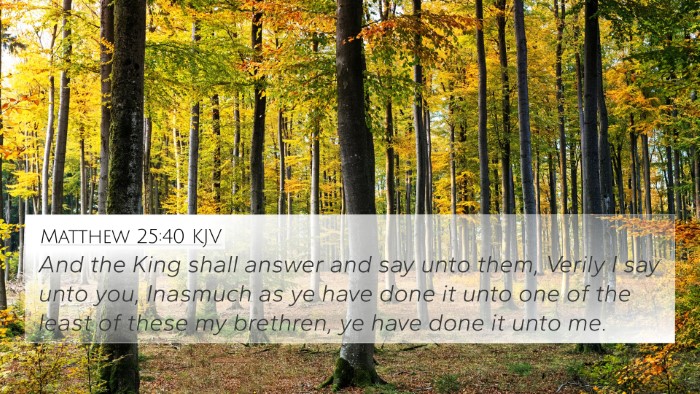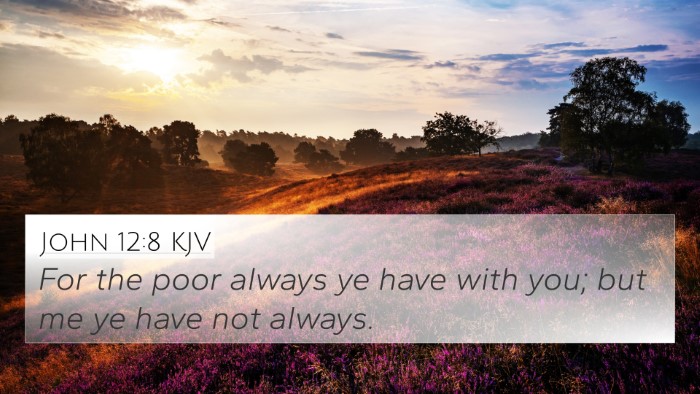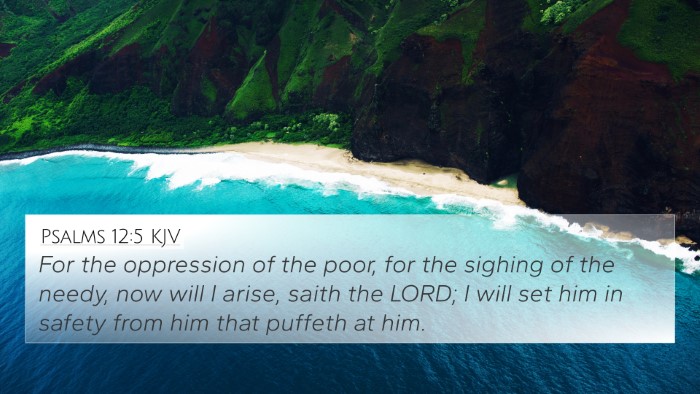Understanding Proverbs 14:31
Proverbs 14:31: "He that oppresseth the poor reproacheth his Maker: but he that honoureth him hath mercy on the poor."
This verse presents a profound commentary on the moral implications of how we treat the less fortunate. According to several public domain commentaries, such as those by Matthew Henry, Albert Barnes, and Adam Clarke, this scripture emphasizes the relationship between our actions towards the poor and our relationship with God.
Verse Interpretation
The first part of the verse, "He that oppresseth the poor reproacheth his Maker," suggests that injustices against the poor are not merely social or economic issues but also spiritual offenses. Matthew Henry notes that oppressing the poor is a direct way to show contempt for God, as He is the creator of all humanity and cares deeply for the downtrodden.
In contrast, the second part, "but he that honoureth him hath mercy on the poor," indicates that those who honor God act with compassion and mercy toward those in need. Adam Clarke points out that showing kindness to the poor is a reflection of one’s understanding of God's love and mercy in their own life.
Connections Between Bible Verses
To deepen our understanding of Proverbs 14:31, we can explore several cross-references that illuminate its themes:
- Exodus 22:22: "You shall not mistreat any widow or fatherless child." - Highlights God's concern for the vulnerable.
- Luke 6:20: "Blessed are you who are poor, for yours is the kingdom of God." - Affirms the value of the poor in God’s eyes.
- James 2:5: "Listen, my dear brothers and sisters: Has not God chosen those who are poor in the eyes of the world to be rich in faith?" - Discusses God's preference for the poor in faith.
- Matthew 25:40: "Truly I tell you, whatever you did for one of the least of these brothers and sisters of mine, you did for me." - Emphasizes that serving others is akin to serving God.
- Proverbs 19:17: "Whoever is generous to the poor lends to the Lord." - Links generosity towards the poor with divine repayment.
- Isaiah 58:10: "If you pour yourself out for the hungry and satisfy the desire of the afflicted..." - Discusses the blessings that come from caring for the needy.
- Psalms 82:3: "Defend the weak and the fatherless; uphold the cause of the poor and the oppressed." - Calls for justice and advocacy for those in need.
Thematic Bible Verse Connections
Understanding the themes within Proverbs 14:31 can be enriched by a thematic analysis that considers various aspects of Biblical teachings on mercy, justice, and the divine nature of humanity. The verses listed above collectively demonstrate a biblical mandate to care for the underprivileged and elevate the moral condition of society.
Comparative Bible Verse Analysis
In conducting a comparative analysis of these scriptures, we see a consistent biblical theme of God’s heart for the poor. This can further be linked back to how individual actions towards the less fortunate are viewed in light of one’s righteousness and relationship with God.
Conclusion
In summary, Proverbs 14:31 not only admonishes us to avoid oppression but encourages us to embody mercy. By recognizing the divine connection in our actions towards the poor, we acknowledge a broader theological truth about our duty not just to humanity but to God himself.
Tools for Cross-Referencing Bible Texts
Utilizing tools for Bible cross-referencing can significantly enrich one’s study:
- Bible Concordance: A resource that helps locate verses related to specific topics.
- Bible Cross-reference Guide: A systematized resource for finding links between scriptures.
- Cross-reference Bible Study: Methods to draw parallels between verses for deeper understanding.
- Bible Reference Resources: Books and tools that aid in exploring connections among biblical texts.
Final Thoughts
Understanding Proverbs 14:31 through the lens of public domain commentaries not only facilitates a deeper comprehension of biblical morality but also encourages practical application in our lives. May we be mindful to honor God through our mercy towards the poor, reflecting His character in all our interactions.
